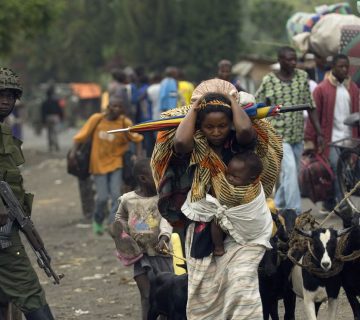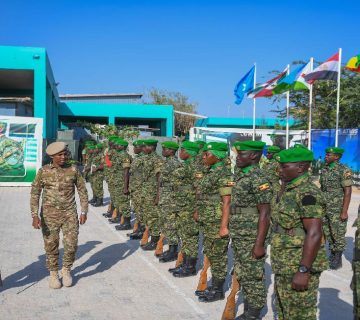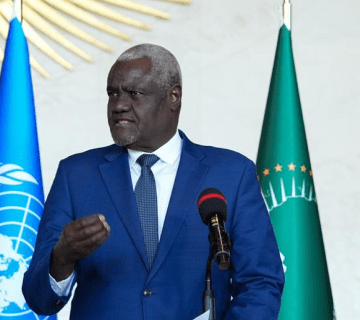President Joseph Kabila has been in power in the DRC since his father, Laurent-Désiré Kabila, the country’s president at the time, was assassinated in 2001. His second term effectively ended in 2016, but uncertainty arose when he and his government failed to provide clarity on whether he would run for an ‘unconstitutional’ third-term. According to the government, Kabila’s second term was technically his first under the new constitution, which was amended in 2011.Mounting public and international pressure from the Southern African Development Community (SADC), the International Conference on the Great Lakes Region (ICGLR), the African Union (AU), and individual international partners of DRC,such as Angola and South Africa, informed Kabila’s August 2018 decision to step-down at the end of the year, paving the way for elections on December 23, 2018. That is good news for the region because no neighbour wants a country the size of Western Europe to descend into chaos, but it does not necessarily mean that the elections will be free and fair.
In recent months, opposition leaders have been barred from running for the presidency, and flaws in the electoral system have surfaced. One of such flaws is the highly disputed use of electronic voting systems, which have never been used in a major election, and are prone to overheating and power-cuts, potentially causing chaos duringthe election day.Kabila has stressed that the elections are “irreversible”, and denounced any foreign interference in the electoral process. Kabila warned that the United Nations will not be “an organization for all if the intrusive interference of some governments in matters undoubtedly in the domestic policy of the states” continues. He did not name any one country.
The government’s proposed candidate, Emmanuel RamazaniShadary, was interior minister during violent crackdowns on protesters demonstrating against Kabila’s refusal to step down when his second elected term expired in December 2016. The EU imposed sanctions on Ramazani and 15 others for what it said were human rights violations and interference with the election process. The EU is due to vote on whether or not to renew those sanctions on December 12, 2018.
The DRC is at the beginning of a transition from authoritarian rule towards a democratic system. Despite two general elections, the country is still far away from becoming a fully functioning liberal democracy. Elections constitute an important part in any democracy, but conducting elections too early or unconstitutionally might result in a reversal to the old order of despotic political leadership under the guise of civil governance. In other words, elections might serve to ‘legitimize’ despots rather than provide avenues for true democratic reform. Elections in their current form in some African states appear to be a fading shadow of democracy, endangering the fragile democratic project itself.
Persistent Violence in eastern DRC
In September, Allied Democratic Forces (ADF) attacked the city of Beni in eastern DRC, killing at least 15 people, including aid workers involved in stopping the spread of Ebola, and injuring many more. Unfortunately,such an attack is not unique. Eastern DRC has experienced violence for decades. More than 120 armed groups roam in the Kivu’s alone, ranging from local militias set up initially as self-defense groups (which include the Mai-Mai) to secessionist groups, and forces first set up by fighters from Uganda, Rwanda, and Burundi.The DRC conflict nowadays is so complex with so many varying actors, issues, and relations that it is difficult to grasp who exactly wants what, where, how, and when. This results in persistent violence in the region, and blocks off any avenue for conflict resolution.
Significant hope for peace in the region is vested in the elections of December 23, 2018. It remains to be seen to what extent the election will have a positive effect in a region that lacks effective state control and institutions. The government is unable to create security and stability in DRC, and one area where insecurity has a profound effect is health. This year, a major outbreak of Ebola has already costed hundreds of lives, and the lack of security creates additional difficulties for proper treating victims and handling corpses, and for containment of the deadly disease.
Another difficulty arising from the chaos following weak government control and persistent violence, is the prevalence of highly organized militant organizations. In eastern DRC, large swaths of territory are under the control of armed militants and rebels, but these often lack clear purpose or leadership. If a group were to professionalize, with or without foreign assistance and expertise, it could potentially drag the eastern provinces down to open war as was witnessed during the M23 occupation of Goma in 2012. The Congolese government is not able to quell this threat due to weak morale in the military, anonymity to Kinshasa in the east, and lack of professionalism from the Congolese army. An open rebellion might even result in another regional war, only this time without the help of DRC’s long-time ally Angola. The countries’ diplomatic ties have nearly been severed over the violent expulsion of thousands of Congolese refugees from Angola in October 2018.



